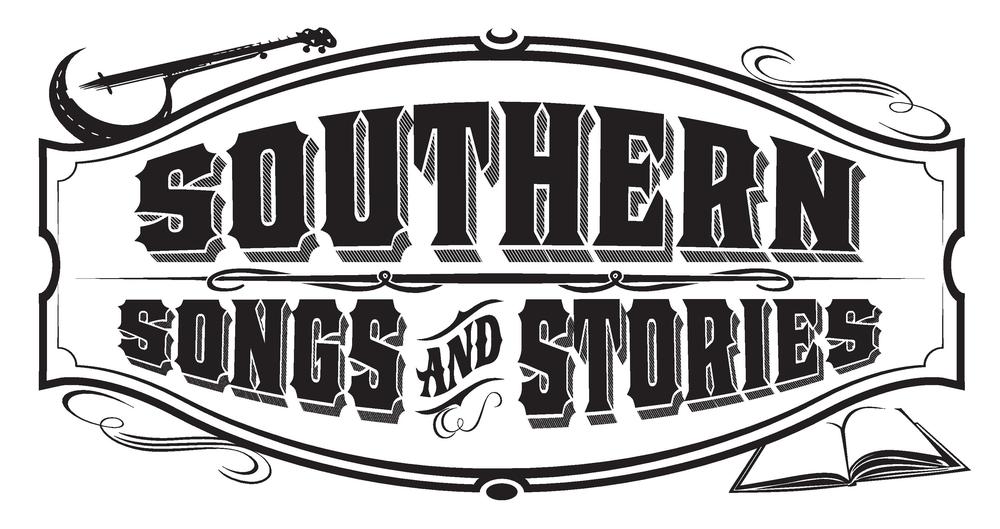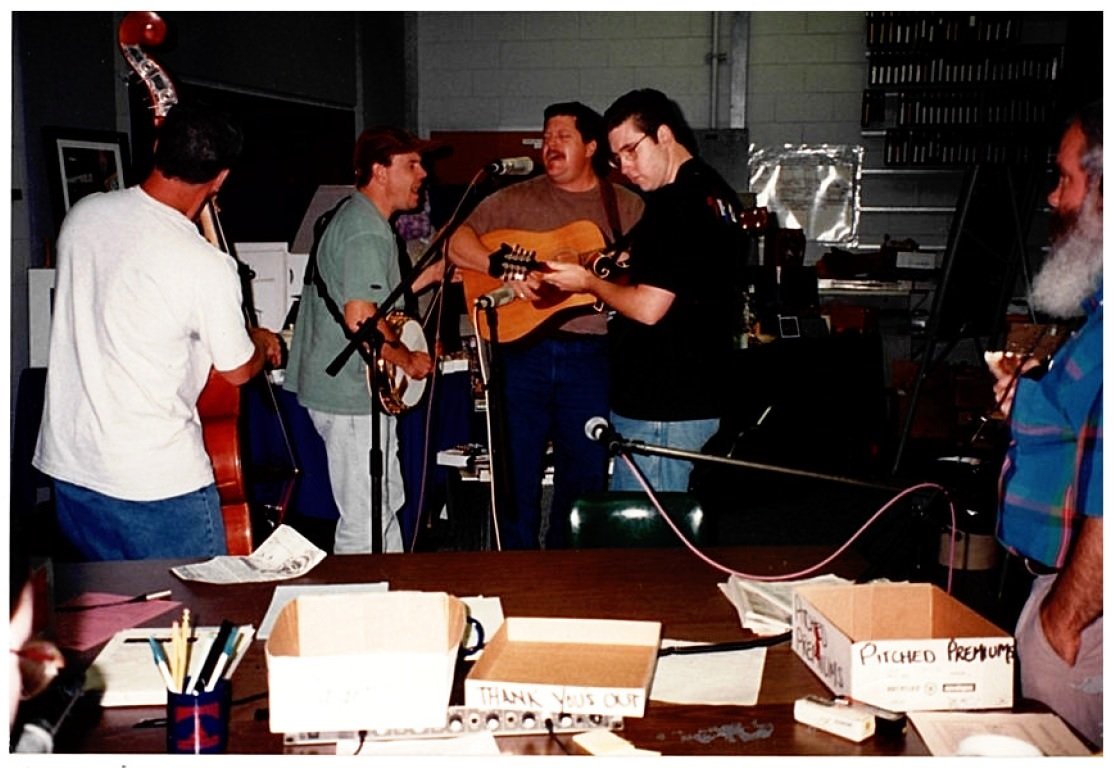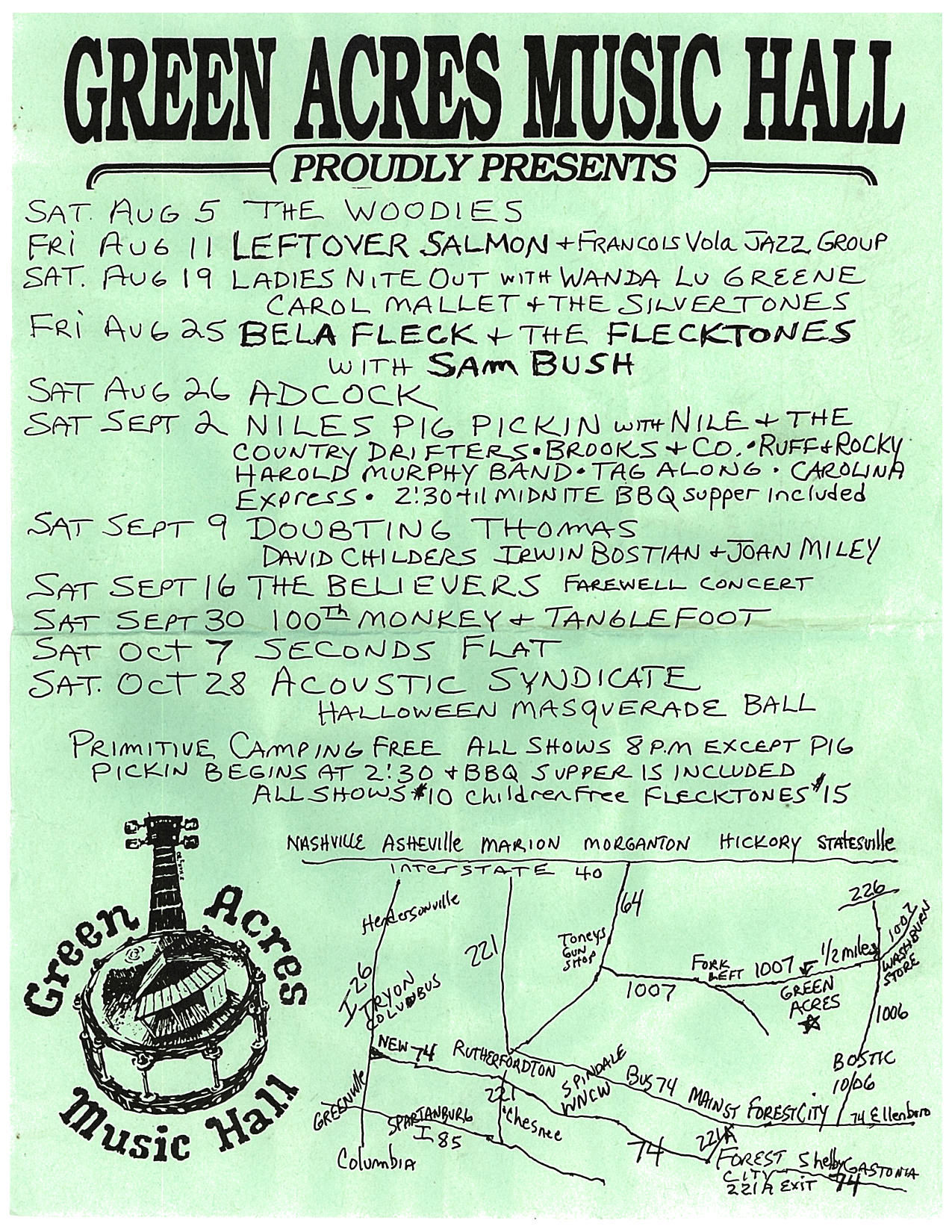When you think about the history of the banjo, its modern context seems ironic in that so many people who enjoy banjo music are unaware of its origin story and any other context than bluegrass and old time. The banjo has become closely associated with string bands especially from the American South of the mid 20th century onwards, while its early American, let alone its African and Caribbean origins tend to be ignored or forgotten.
While his spark was lit by players from the dominant narrative like Earl Scruggs, Bela Fleck was destined to take the banjo on a musical journey that is nothing short of epic. Bela played the Scruggs style; he pushed the envelope with that style in New Grass Revival; he invented his own language on the instrument with his band the Flecktones; he went on to put it square in the middle of collaborations with artists from Africa and India, among many other pioneering works.
Joe Kendrick (L) and Bela Fleck (R) at IBMA in Raleigh, NC 09-29-22
In late September 2022, I sat with Bela Fleck in downtown Raleigh, North Carolina at the convention center where the International Bluegrass Music Association was holding its annual conference and festival, an event which saw Bela win “Album of the Year”, “Instrumental Group of the Year”, “Instrumental Recording of the Year” and “Banjo Player of the Year”. My Bluegrass Heart won a Grammy award for best bluegrass album, too. They were his first awards at the event since the dissolution of his former band New Grass Revival more than thirty years ago.
In the hours before those IBMA awards came his way, we spoke about his return to bluegrass, how the form is underestimated among many in other circles, what he thinks roots music needs most right now, which to give you a hint is not more instrumental virtuosos, his dream collaborations and much more.
Songs heard in this episode:
“Vertigo” by Bela Fleck from My Bluegrass Heart
“Wheels Up” by Bela Fleck from My Bluegrass Heart featuring Sierra Hull and Molly Tuttle, excerpt
“Slippery Eel” by Bela Fleck from My Bluegrass Heart featuring Billy Strings and Chris Thile, excerpt
“Hunky Dory” by Bela Fleck from My Bluegrass Heart, excerpt
Thanks for visiting! Would you share this episode with someone who might enjoy it also? It is super easy to follow us on your podcast platform of choice, and then it will only take a minute to give it a good rating, and on platforms with the option, a review. Great ratings and reviews will make Southern Songs and Stories and the artists it profiles more likely to be found by more people just like you.
Southern Songs and Stories is a part of the podcast lineup of Osiris Media, with all of the Osiris shows available here. You can also hear new episodes of this podcast on Bluegrass Planet Radio here. Thanks to Corrie Askew for producing the radio adaptations of this series on public radio WNCW, and to Joshua Meng, who wrote and performed our theme songs. This is Southern Songs and Stories: the music of the South and the artists who make it. - Joe Kendrick





